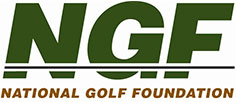Better Understanding Municipal Golf
The NGF receives hundreds of media requests through our media@ngf.org email account for data and/or our viewpoint on the golf business. While we do field questions from those with a national audience — Bloomberg, the Wall Street Journal, HBO and The New York Times among them — the bulk of requests originate from journalists working for a local media outlet on, you guessed it, a local golf story.
In recent months, we have seen an uptick in media inquiries from local journalists interested in the subject of municipal golf.
Part of that might be local politics and the golf season kicking into full swing. It also could be because Bethpage Black (one of the game’s most storied municipal golf courses) hosted the 2019 PGA Championship, putting added focus on muni golf. While Bethpage (part of a New York State Park) is not your typical “Muni,” it’s clear that many of the nation’s approximately 2,500 municipal golf facilities can, and do, make a positive impact on local communities.

The new South Course at Corica Park in Alameda, California, five minutes from the Oakland Airport. The facility has two 18-hole courses (the North and South) along with a nine-hole par-3 layout. (Photo courtesy: Corica Park)
One of the things we’ve noticed in the recent media inquiries relating to muni golf is the surprise expressed by many journalists that a municipal golf course, or system of courses, might actually “lose” money for the government entity. This is then frequently followed by the contention or insinuation that economic loss in municipal golf is a direct reflection of the oft-reported “national decline” in golf.
The fact is, we don’t believe that making money is always the primary motivation that drives a municipality to offer golf as recreation for its residents. Community amenities created and/or operated by local governments commonly subsidize recreation, whether it is the county pool, adult basketball program, the local senior center, the tennis facility, and yes, the local golf course. The lack of profitability at some municipal golf courses isn’t surprising, and it also isn’t a representation of the overall health of the U.S. golf industry.
The reality is that an estimated 67% of all public-agency golf facilities make enough revenue to cover all on-site expenses. However, many of these facilities will fall short of covering all associated expenses when deeper off-course obligations such as debt, administration, capital expenditures, interest, service charges, depreciation, and retirement system commitments are included. Of those that contend with debt on their course and/or clubhouse, 80% report they’re still able to cover operating expenses.
‘And then there’s Pacific Grove Golf Links, a municipal marvel designed by the very minds that helped create Pebble Beach, mixed in with it all and boasting a back nine with views that rival the peninsula’s heavyweights.’ #golfweek #pacificgrove https://t.co/e4BxNaERBB
— Pacific Grove Golf (@PacificGroveGC) April 29, 2019
At the core, municipal golf courses are basically government-owned facilities trying to provide affordable recreation to the residents of a community.
Muni golf has a long and storied place in the history of golf, and these facilities are often where golfers play for the first time, and where golf is most affordable and accessible to people of all ages and demographics in a town, city or county. In many cases, a muni golf course provides an oasis of open space in areas often choked by over-development. In addition, we at NGF suspect that if you take a close look at who is actually playing golf at your local muni golf course, you will find a customer base that looks like a diverse cross-section of local residents of all ages, and ethnic backgrounds.
The NGF is currently conducting a deep-dive into municipal golf in the U.S. to address, in a thoughtful way, the inner workings of government-owned golf courses. There are almost 2,900 such courses at the more than 2,500 U.S. municipal golf facilities.
Through this extensive research project, we are hoping to shed some light on the basics of municipal golf and improve the basic understanding of how governments operate golf courses, the role these facilities play in our industry, and the benefits they provide to local communities. We hope this research might help dispel some common misconceptions about muni golf courses and their place in a game often dismissed as an “elitist activity” by segments of the public and media. This is despite the fact that 75% of golf courses in America are open to anyone and the average cost of an 18-hole round of public golf is around $35 ($31 if you exclude resort courses from the equation).

The 17th green at Wailua Municipal Golf Course on Kauai, where island residents can play for between $26 and $60 — per month.
As the leading consulting firm for muni golf operations in the U.S., the NGF has taken part in many public meetings helping to educate communities and elected officials about how to improve the performance of municipal golf courses. We often encounter misunderstanding about golf and the challenges faced by municipal employees who deal with an often-conflicting dual responsibility — providing an affordable community recreation option and still making money. This conflict often unavoidably perpetuates financial pressure.
In addition to dealing with extensive government “red tape,” municipal course administrators frequently find themselves under significant pressure to keep costs down even as expenses such as water, labor, turf inputs and maintenance equipment continue to rise.
Golf is one of the many responsibilities accepted by local governments, and competition for limited resources can have a monumental impact on public-sector golf operations. We are hopeful that our research into municipal golf will help golf industry folks, government officials and journalists better understand the dynamic of public sector golf and its place within the overall offering of golf facilities in the U.S.
(Top story image is of Bethpage State Park’s Black Course, one of five 18-hole layouts at the municipal facility. Photo courtesy of the PGA of America)
Short Game.
"*" indicates required fields
How can we help?
NGF Membership Concierge

"Moe"
Learn From NGF Members
 Ship Sticks Secrets to a Hassle-Free Buddies Golf Trip
Ship Sticks Secrets to a Hassle-Free Buddies Golf Trip
Whether you’re the head planner of your upcoming buddies golf trip or simply along for the ride, we’ve gathered a few easy ways to keep everyone in your group happy.
Read More... Golf Course Turf, Soil and Water Quality Diagnostic Testing
Golf Course Turf, Soil and Water Quality Diagnostic Testing
As humans, we see our primary care physician on a regular basis to proactively evaluate our vital signs. Likewise, a superintendent should perform frequent diagnostic testing on their golf course.
Read More... Unlocking Distance: Launch Conditions and Angle of Attack
Unlocking Distance: Launch Conditions and Angle of Attack
We’ve long known that higher launch and lower spin is a powerful combination for generating consistently long and straight tee shots. A key factor in optimizing launch conditions, one often overlooked, is ...
Read More...





